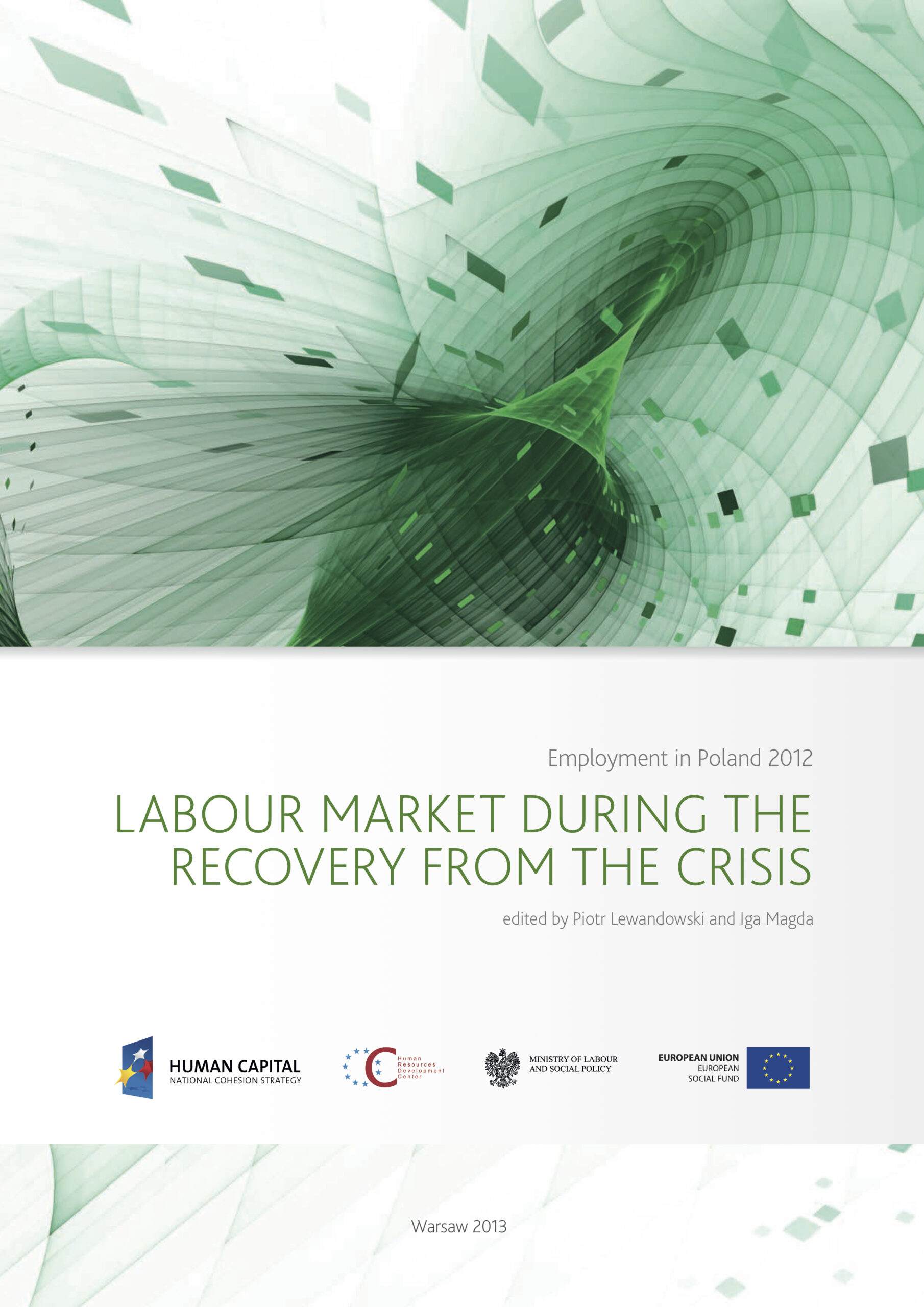We present the eighth edition of “Employment in Poland” which has been prepared by the Institute for Structural Research and commissioned by the Human Resources Development Centre.
This edition is devoted to the impact of the global financial crisis of 2007-2009 (known as the Great Recession) on the labour market and its direct effects in developed countries (especially in the euro zone), namely the financial crisis and debt crisis. The Report is divided into four parts.
The first part, The Great Recession, is devoted to the causes, course and consequences of the 2008 macroeconomic crisis across the EU and OECD. We aim to create a comprehensive picture of the course of the Great Recession in individual countries, to understand the causes and transmission mechanisms, and to identify multidimensional similarities and differences between countries and the crises of the past.
The second part, The Great Recession and inequality, deals with diversity of the impact of the crisis on socio-demographic groups in the labour market. We identify groups that are most vulnerable to the negative effects of cyclical change, in particular long-term unemployment. This part of the Report is crucial from the perspective of designing appropriate support under labour market policies. We show how changes in the economic situation affected the stratification of income.
The third part, Public policy in the face of the crisis, is devoted to policy and the institutional response to the crisis. Here we analyse the impact of public intervention on the course of the crisis, with a focus on international institutional differences in ability of labour markets to absorb shocks, differences in responses by EU and OECD governments and their effectiveness.
The fourth part, The crisis in public finances and the second wave of recession, is a natural culmination of the Report. Its subject is the importance of fiscal policy in the course of the Great Recession. We attempt to answer how the state of public finances in different countries changed before and during the crisis, and reconstruct the processes and regularities occurring in the studied economies with special attention paid to the role of automatic stabilisers and discretionary policies.
The summary of the Report comprises recommendations for public policy.


